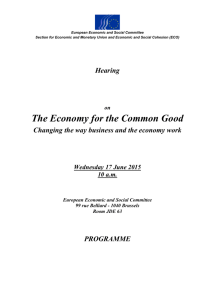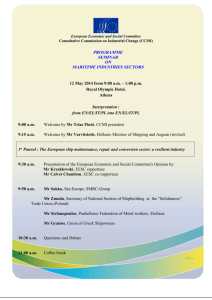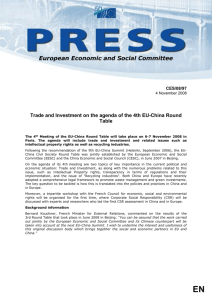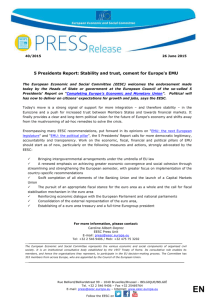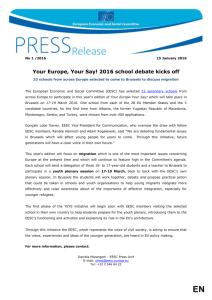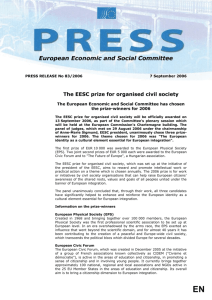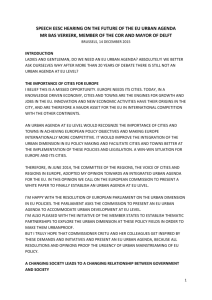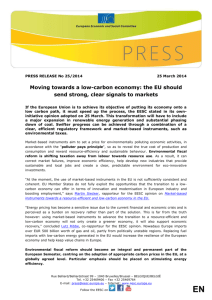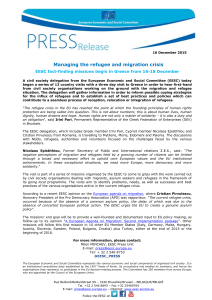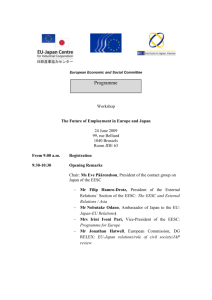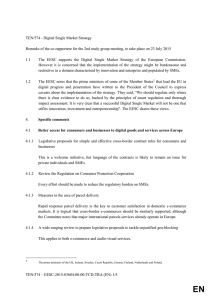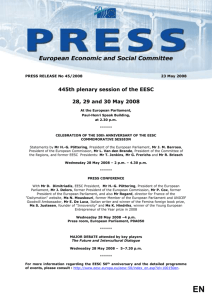DOC - Europa
advertisement
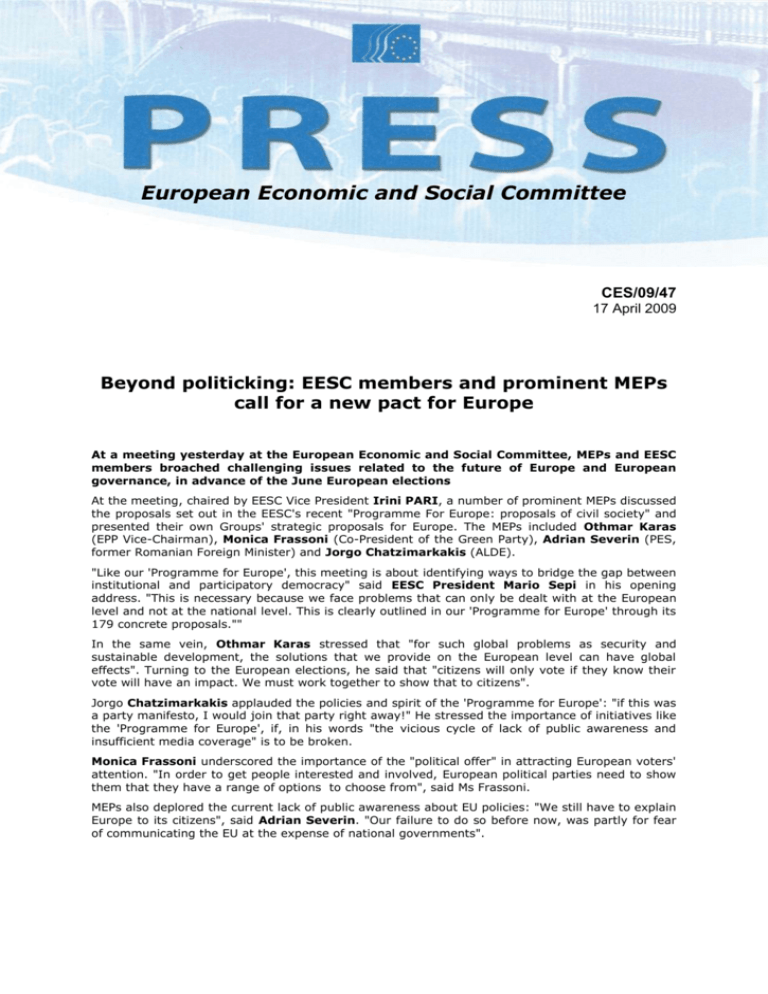
European Economic and Social Committee CES/09/47 17 April 2009 Beyond politicking: EESC members and prominent MEPs call for a new pact for Europe At a meeting yesterday at the European Economic and Social Committee, MEPs and EESC members broached challenging issues related to the future of Europe and European governance, in advance of the June European elections At the meeting, chaired by EESC Vice President Irini PARI, a number of prominent MEPs discussed the proposals set out in the EESC's recent "Programme For Europe: proposals of civil society" and presented their own Groups' strategic proposals for Europe. The MEPs included Othmar Karas (EPP Vice-Chairman), Monica Frassoni (Co-President of the Green Party), Adrian Severin (PES, former Romanian Foreign Minister) and Jorgo Chatzimarkakis (ALDE). "Like our 'Programme for Europe', this meeting is about identifying ways to bridge the gap between institutional and participatory democracy" said EESC President Mario Sepi in his opening address. "This is necessary because we face problems that can only be dealt with at the European level and not at the national level. This is clearly outlined in our 'Programme for Europe' through its 179 concrete proposals."" In the same vein, Othmar Karas stressed that "for such global problems as security and sustainable development, the solutions that we provide on the European level can have global effects". Turning to the European elections, he said that "citizens will only vote if they know their vote will have an impact. We must work together to show that to citizens". Jorgo Chatzimarkakis applauded the policies and spirit of the 'Programme for Europe': "if this was a party manifesto, I would join that party right away!" He stressed the importance of initiatives like the 'Programme for Europe', if, in his words "the vicious cycle of lack of public awareness and insufficient media coverage" is to be broken. Monica Frassoni underscored the importance of the "political offer" in attracting European voters' attention. "In order to get people interested and involved, European political parties need to show them that they have a range of options to choose from", said Ms Frassoni. MEPs also deplored the current lack of public awareness about EU policies: "We still have to explain Europe to its citizens", said Adrian Severin. "Our failure to do so before now, was partly for fear of communicating the EU at the expense of national governments". European Economic and Social Committee In their statements, EESC Group Presidents called for action to inform and involve European citizens: "European citizens will not turn out to vote simply because we ask them to. We need to inform them" said Employees' Group President George Dassis. Employers' Group President Henri Malosse insisted on the need to "recreate a Europe of citizens and not a Europe of bureaucracies". "In the last years we have achieved much more than we did in previous centuries". Staffan Nilsson, President of the EESC's Various Interests' Group echoed this viewpoint and said "We need to keep going down that road and our 'Programme for Europe' points the way for us" For more details, please contact: Barbara Gessler at the EESC Press Office, 99 rue Belliard, B-1040 Brussels Tel.: +32 2 546 9396; Mobile: +32 475 75 32 02 Email: press@eesc.europa.eu Website: http://www.eesc.europa.eu/ Press Releases: http://www.eesc.europa.eu/activities/press/cp/index_en.asp (English) http://www.eesc.europa.eu/activities/press/cp/index_fr.asp (French) The European Economic and Social Committee represents the various economic and social components of organised civil society. It is an institutional consultative body established by the 1957 Treaty of Rome. Its consultative role enables its members, and hence the organisations they represent, to participate in the Community decision-making process. The Committee has 344 members, who are appointed by the Council of Ministers.
